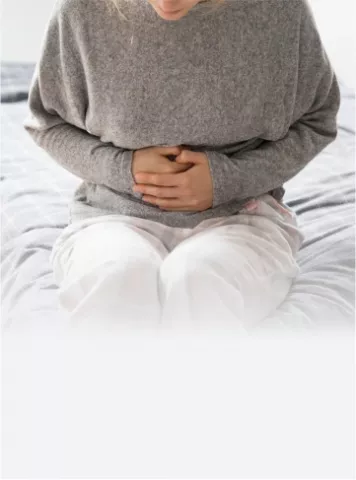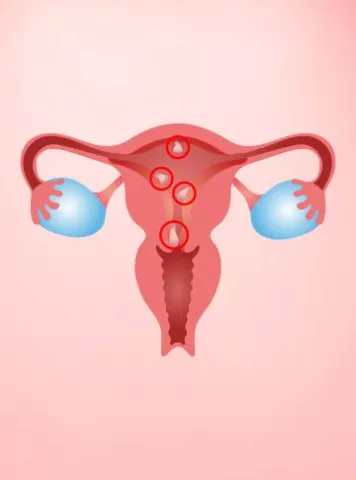Pregnancy is one of the most important phases in women’s life and is considered as true sign of womanhood. Though, some woman find difficulty in conceiving. Currently, one in every six couples in India is suffering infertility. It can be divided depending on causes into male factor, female factor and unexplained infertility. Of which female factors contributes around 40%. Female factors responsible for infertility are tubal problems (tubal blockages, previous tubal surgeries) which is leading cause followed by ovulatory dysfunction, uterine and peritoneal disorders.
Women with “tied tubes” are those who have previous one or more child and had undergone tubal ligation operation. It blocks both fallopian tubes and prevents future pregnancy as fallopian tubes have important role in pregnancy like transportation of egg and sperms, it is a place where fertilization takes place and transport of embryo to the uterus. Tubal ligation is popular form of birth control as it is safe, effective and convenient.
Around 10-15% of women who had tied tubes later wish to conceive again due to some reasons like loss of or Ill health of child or due to marital conflicts like second marriage. For such women, options for treatment are tubal ligation reversal operation or IVF. Both of these procedures have their own merits and demerits. In tubal ligation reversal operation chances of failure are more if length of remaining fallopian tubes is less, advanced maternal age, thermal injury to tubes or scarred tubal tissue and poor surgical skills. Such patients with failed reversal operation eventually have last and best treatment option as IVF.
So, it is better to proceed with IVF (In Vitro Fertilization) in women with tied tubes considering better success rate of achieving pregnancy and also decreasing time to pregnancy. It also avoids an operative procedure for women and mental trauma in cases who fail to conceive after tubal reversal operation. IVF is also the treatment of choice for those with tubal blockages and women who has undergone salpingectomy operation (salpingectomy is surgical removal of fallopian tubes either due to tubal diseases like hydrosalpinx, pyosalpinx, TB or for treatment of ectopic pregnancy. IVF is best treatment option for infertile patients with tubal problems as their tubes are non-functional.
In IVF, we give hormonal injections to women for 10-12 days which causes growth of their eggs, this process called as Controlled Ovarian Hyperstimulation. Then on the last day of these injection another different type of injection is given which is called as trigger. Trigger injection leads to maturation of these eggs. Then after around 34-36 hours of trigger injection procedure of egg retrieval is planned.
Eggs are taken out from women’s ovary with the help of a thin, long needle with help of suction pump. This procedure is done under anaesthesia, so it is painless. It is called as Ovum pick-up (OPU)/Egg retrieval. On the same day of ovum pick-up, husband’s semen sample is collected and best quality sperms are selected from it. These eggs and sperms are then kept together in a culture medium in laboratory with temperature controlled conditions where fertilization takes place which results in formation of embryos.
These embryos are then cultured in lab and their grading/quality assessment is done. Best quality embryos are then transferred to the uterus of the women, which is called as embryo transfer. As everything which was happening in fallopian tubes in natural pregnancy is done in laboratory, normal fallopian tubes are not required in IVF procedure.
In recent times success rate of IVF has increased when compared to past due to advancement of technology. Techniques like blastocyst culture, laser assisted hatching and freezing of embryos and transfer at later stage increses the chances of conception and decrease the time duration of treatment. These procedures are suitable for all women and have less risk involved in experienced hands. So, the women with tied tubes can surely get pregnant if we chose right treatment option at right time.
Articles
2023


World AIDS Vaccine Day 2023: Can HIV & AIDS affect fertility or your infant’s health?
World AIDS Vaccine Day is observed every year on the 18th of May to create awa...
2023


Male Infertility Infertility Tips
Hyperspermia: Causes, Symptoms, Diagnosis & Treatment
What is Hyperspermia? Hyperspermia is a condition where an individual produ...


Guide to infertility treatments Infertility Tips
पीआईडी: पेल्विक इनफ्लैमेटरी डिजीज और निःसंतानता
पीआईडी - पेल्विक इनफ्लैमेटरी �...
2022


Infertility Tips Uterine Fibroids
Endometrial Polyps (Uterine Polyps)
What are Endometrial Polyps (Uterine Polyps)? Endometrial polyps, often ref...
2022


Female Infertility Infertility Tips
Why do You Need Fertility Treatment
As we all know infertility rate is constantly rising in our society day by day...
2022


Cesarean Section Vs Natural Birth
Surrogacy centers in Delhi and Infertility centers in Pune state that there ar...
2022


ನಿಮಗೆ ಹುಟ್ಟಲಿರುವ ಮಗುವನ್ನು ಅರ್ಥಮಾಡಿಕೊಳ್ಳುವುದು: ಗರ್ಭದಲ್ಲಿ ಮಗು ಹೇಗೆ ಬೆಳೆಯುತ್ತದೆ!
ವೀರ್ಯವು ಮೊಟ್ಟೆಯನ್ನು ಭೇಟಿಮಾಡ�...
2022


Diet Chart for Pregnant Women: The Right Food for Moms-To-Be
Pregnancy Food Chart 1. The daily diet must include the right amount of pro...
Pregnancy Calculator Tools for Confident and Stress-Free Pregnancy Planning
Get quick understanding of your fertility cycle and accordingly make a schedule to track it















